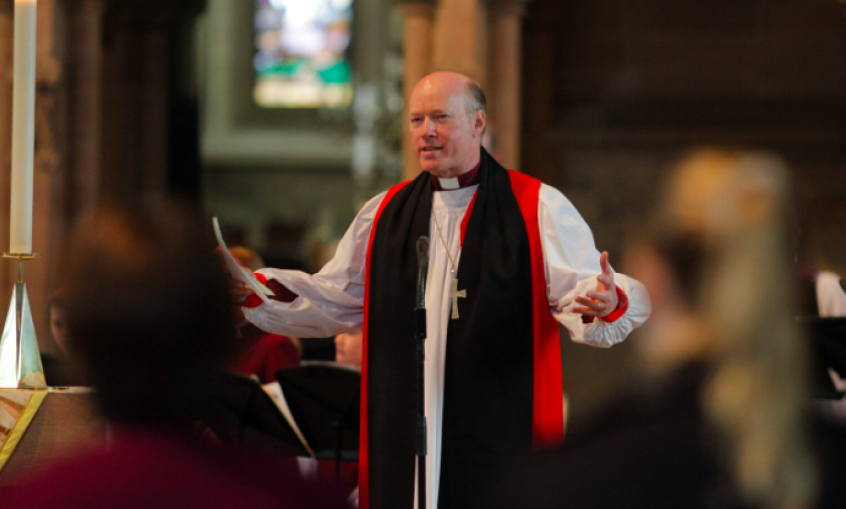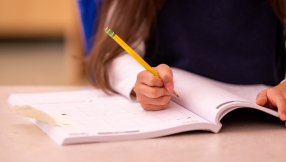
The Bishop of Southwell and Nottingham has written to clergy in his diocese asking them not to use the Church of England's divisive new prayers of blessing for same-sex couples.
The House of Bishops approved the Prayers of Love and Faith for use in services from this Sunday and released accompanying pastoral guidance on how they can be used. The bishops are still considering how to introduce standalone services using the prayers, as backed by the General Synod last month.
In his ad clerum letter, Bishop Paul Williams asks clergy not to use the prayers until they have had proper consideration and authorisation by General Synod under Canon B2.
Bishop Williams is one of 11 bishops to have publicly dissented from commending the prayers. He set out in his letter why he could not support the prayers.
"The bishops have been advised that it is likely that such use is indicative of a change of doctrine," he wrote.
"As your bishop I simply cannot advise you to use prayers that indicate a departure from the clear teaching of the Church of England.
"In addition, the legal and theological advice I have seen has not convinced me this change is not 'in any essential matter' (Canon B5.3)."
Elsewhere expressed his "substantial concerns" about the prayers and the subsequent process to bring them into effect, and raised concerns about the amount of division they were causing within the Church of England.
"This is an immensely difficult and sensitive issue over which it is clear there is deep disagreement in the Church of England," he said.
"All are agreed that the church has often failed LGBTQI+ people but we are not agreed on whether its teaching needs to be changed and on what is permissible within the present teaching.
"This disagreement exists within every diocese and many parishes; it was also reflected in the very narrow majorities in the Houses of Laity and Clergy in voting to pass the Motion in the General Synod."
In the Synod vote last month, 23 bishops voted for the proposals, 10 against and 4 abstained. Among clergy, there were 100 votes for and 93 against, with one abstention. Within the laity, 104 voted in favour and 100 against, with no abstentions.
Bishop Williams said that he did not intend to impose constraints on clergy exercising their discretion but asked that "before using the prayers in public worship, that ministers give consideration to waiting until the standalone services have been through the process set out within Canon B2".
"Canon B2 is the right and proper way for liturgical matters that are a source of contention affecting the wellbeing and the unity of the Church of England to be carefully weighed and considered by the General Synod," he said.
He went on: "In considering how to use your discretion in relation to public worship it is important to recognise that commendation by the House of Bishops does not give these Prayers any legal status; the commendation is a formalised suggestion by the House of Bishops that the minister with cure of souls might wish to use material which the House of Bishops considers meets the requirements in Canon B5.
"You need, however, to exercise your own discernment in this and to do so in the light of the church's doctrine and canons. The doctrine of marriage remains unchanged, including that it is within marriage that sexual intimacy finds its proper place."













